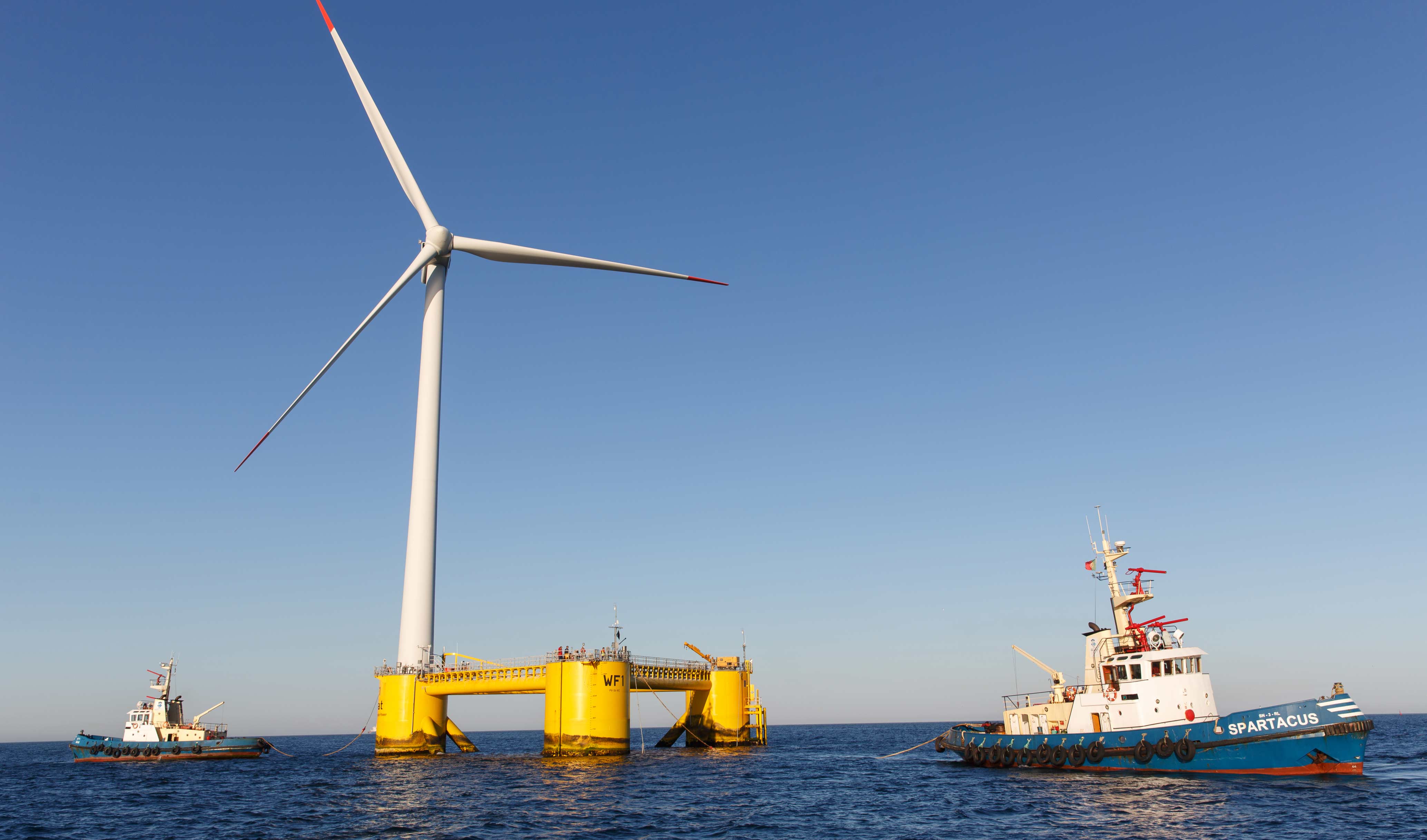
EDP is a partner in the first European robot center in offshore wind farms

The European Atlantis center will be in Viana do Castelo and involves an investment of 8.5 million euros. It is coordinated by INESC TEC, and has EDP (NEW - Center For New Energy Technologies) as its main partner.
The first European real-time maritime robot testing center will be set up on the coast of Viana do Castelo. Atlantis Test Center will enable the validation of robotic solutions in the most extreme weather conditions of the Atlantic Ocean, especially for the inspection and maintenance of offshore wind infrastructure.
The European project Atlantis - The Atlantic Testing Platform for Maritime Robotics: New Frontiers for Inspection and Maintenance of Offshore Energy Infrastructures, led by INESC TEC and with the participation of EDP and support from various technological and academic partners, reinforces the development of monitoring and maintenance technologies for wind infrastructures at sea. The project will create a pioneering platform in Europe which aims to demonstrate robotic technologies and solutions that are essential for the inspection and maintenance of offshore wind farms around the world.
Atlantis will focus on the inspection, maintenance and repair of offshore wind infrastructures, where a number of autonomous robots (underwater, surface and air) will be developed and tested in various industrial scenarios, such as the inspection of mooring lines, the monitoring underwater structures and turbine cleaning. The use of robots in this sector aims to mitigate risk and reduce the cost of operating and maintaining offshore wind farms, particularly in deep water.
The center will use WindFloat Atlantic Park to validate and demonstrate robotic applications developed by research centers or technological companies, that contribute to the sustainability of this sector.
EDP, through the EDP NEW Center for New Energy Technologies and in close collaboration with Principle Power (WindFloat Technology), leads the offshore demonstration component and invests in the project to increase the competitiveness of floating offshore wind technology. “WindFloat, namely WindFloat Atlantic, is a giant step in creating new markets for renewable energies and in particular for the wind sector. The Atlantis project is strategic for the company because of its focus on one of the central vectors that will decisively contribute to increasing the competitiveness of floating offshore wind power: innovative operation and maintenance, creating viable new options for removing carbon dioxide from the energy system and society," says João Maciel, R&D Director at EDP.
Offshore wind power is important for reducing dependence upon fossil fuels and for de-carbonizing society. Installed capacity in Europe is expected to triple over the next decade as a result of new concessions, the growth of wind farms and the development of new technologies. Portugal will make a strong contribution to growth in this area with the installation and start-up of the first floating offshore wind farm off of continental Europe, with the world's largest turbine based on a floating platform, the WindFloat Atlantic.
“Atlantis Test Center will enable us to quantify the added value of new robotic technology and accelerate our integration into the maritime wind power industry. The project is based on a true symbiosis between the energy and maritime robotics industries. This innovation center will be installed in Viana do Castelo and will be of strategic importance for the scientific robotics road-map across Europe,” says Andry Maykol Pinto, project coordinator and researcher at INESC TEC. "The Atlantis Test Center will be an excellent opportunity for small and medium-sized enterprises (SMEs) to develop technologies that enhance the sustainability of the maritime wind sector, as they will be able to experimentally evaluate their products and tailor their offerings to the needs and expectations of an emerging market," adds Andry Maykol Pinto.
The project, which is expected to last three years, has a total investment of € 8.5 million financed by the H2020 - Framework Program for Research and Innovation, under agreement number 871571. In addition to INESC TEC and EDP NEW Center for New Energy Technologies (Portugal), the consortium includes eight partners from 5 countries: Teknologian Tutkimuskeskus VTT and ABB OY (Finland), Principle Power France and ECA Robotics (France), Space Application Services NV (Belgium), IQUA Robotics and Universitat de Girona (Spain) and RINA Consulting SPA (Italy).